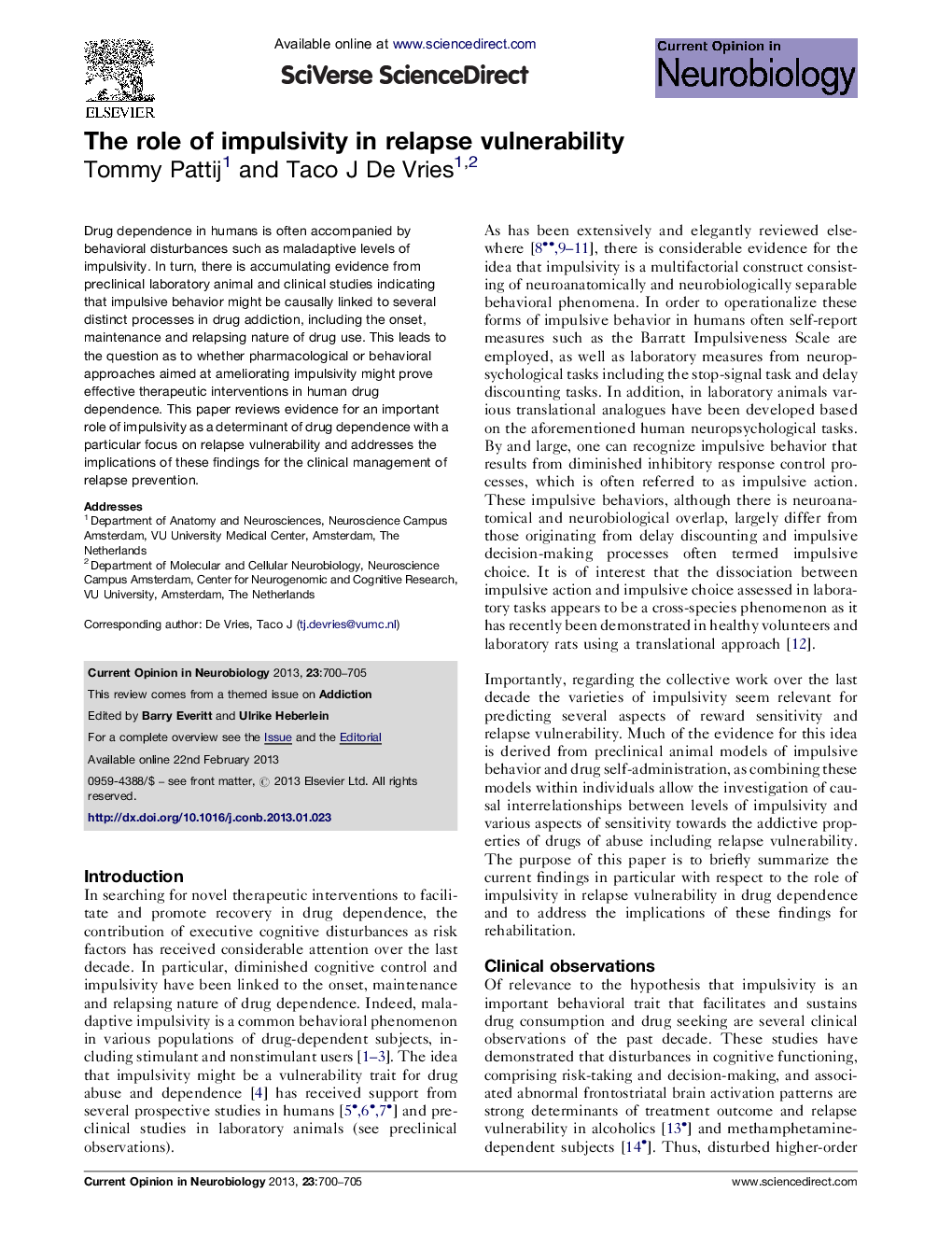| Article ID | Journal | Published Year | Pages | File Type |
|---|---|---|---|---|
| 6267148 | Current Opinion in Neurobiology | 2013 | 6 Pages |
Drug dependence in humans is often accompanied by behavioral disturbances such as maladaptive levels of impulsivity. In turn, there is accumulating evidence from preclinical laboratory animal and clinical studies indicating that impulsive behavior might be causally linked to several distinct processes in drug addiction, including the onset, maintenance and relapsing nature of drug use. This leads to the question as to whether pharmacological or behavioral approaches aimed at ameliorating impulsivity might prove effective therapeutic interventions in human drug dependence. This paper reviews evidence for an important role of impulsivity as a determinant of drug dependence with a particular focus on relapse vulnerability and addresses the implications of these findings for the clinical management of relapse prevention.
⺠This paper reviews evidence for an important role of impulsivity in drug addiction with a particular focus on relapse vulnerability. ⺠Impulsivity levels can reliably predict onset and maintenance of drug taking and seeking as well as relapse rates. ⺠Impulsivity as a target for pharmacological intervention to prevent relapse may seem a promising strategy. ⺠It remains to be determined whether impulse control and relapse vulnerability are interrelated processes or represent independent entities.
